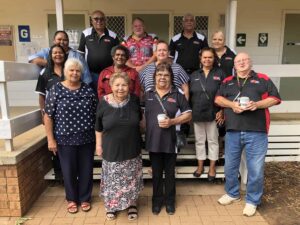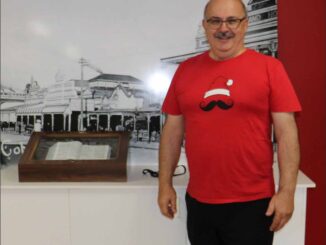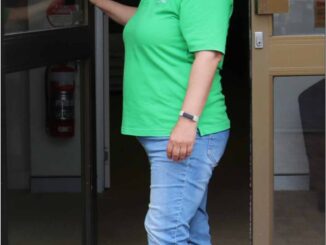
An official opening of Murdi Paaki’s new administration offices in Bathurst Street (at the former TAFE site) was held last Wednesday.
Chairperson of the Cobar Community Working Party Elaine Ohlsen delivered the Welcome to Country to receive the represent-atives of the 16 Aboriginal and Torres Strait Islander communities from across Western NSW who attended.
Head of the Murdi Paaki Regional Assem-bly (MPRA), Des Jones explained the role of Murdi Paaki.
“We serve the interests of local people, their aspirations and their priorities around their community and we encourage the voice of the community people to come through us,” Mr Jones said.
MPRA and its membership of Community Working Parties (CWPs), form the govern-ance framework that provides strategic en-gagement and co-ordination from Australian and NSW Governments and service providers for the delivery of services and programs against priorities determined by Aboriginal people through a comprehensive planning process.
MPRA’s governance model promotes the practice of good governance, responsible lead-ership and empowerment, and is a legacy of the former Murdi Paaki ATSIC Regional Council.
Mr Jones said MPRA had been established for “20 odd years” and for some time Cobar had been a central point for their regular meet-ings.
With MPRA representing people from Wenthworth/Dareton in the south to Enngonia and Goodooga in the north and Broken Hill and Wilcannia in the west to Coonamble and Gulargambone in the east, Mr Jones said it made sense to set up their Murdi Paaki admin-istrative services in a central point, which is Cobar.
MPRA’s CEO Ken Clark said MPRA’s 16 communities cover 40 per cent of the state.
“It’s a big region and Cobar is pretty central to the region and that’s why the decision was made to establish a place here and invest in the local community as well,” Mr Clark said.
“We have economic development programs in place and a range of programs for our ten-ants across the region.”


